Mozambique: Attacks in Memba district destroyed 370 houses - Nampula governor
Mozambique: New legal regime for political parties is indispensable
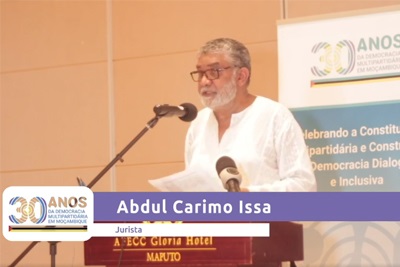
Photo: IMD
Mozambican lawyer Abdul Carimo Issa says a new legal regime for political parties in Mozambique is indispensable and argues that democracy and transparency at the state level cannot be conceived without internal democracy and transparency at the level of the parties, which are determining agents of political life.
Carimo was speaking in Maputo on Thursday [November 5] during the round table on the Law on Political Parties, in view of current challenges and issues of sustainability.
He underlined that party electoral law must be in harmony with state electoral law, as an obvious matter of consistency.
“The reform of the political system has to start with political parties. It must start by the renovation of their methods of action and of the mentality of their militants and leaders; and it goes through the democratisation of their electoral practices and norms, [through] their full democratisation,” the lawyer said.
Abdul Carimo Issa believes that a new political party legal regime is indispensable and would contribute to “extending the legitimacy and transparency of the political system, the commitment of citizens and the credibility of politics” more than any other legal measure.
For Issá, it is incomprehensible that, with electoral law being so closely linked to the law of political parties, it has been the pattern that each legislature has seen a revision of electoral law while, to date, there has been no improvement in the political party regime.
“Greater and better democracy cannot be achieved, it seems, by law. They have to come from the parties themselves and from the strength of public opinion,” Issá said, explaining that it was a question of projecting constitutional principles into the political parties, possibly with adaptations.
In turn, the Director of Programmes at the Institute for Multiparty Democracy (IMD), Dércio Alfazema, advocated the need for political parties to actively participate in electoral processes, making their contribution to improving electoral legislation and, above all, helping to improve the organisation of the elections, through the constructive sharing of issues which require improvements.
Alfazema stressed that political parties should also seek to capitalise on other platforms for dialogue with members of parliament on various matters, influencing debate on structural issues in the country such as the armed conflicts in the central and northern areas of the country.
“We expect political parties to harmonise the interests of Mozambicans effectively, channelling the concerns and demands of society,” Alfazema said, pointing out that political parties have seen their space for participation in electoral processes limited by issues of formal and legal nature.
According to him, from the 2009 elections until now, political parties have expressed an interest in participating in electoral processes, but, due to the failure of certain formalities, they end up staying out of the process, sometimes because of weak technical or logistical capacity.
“In fact, of the 67 existing political parties, less than half participate in electoral processes. Some parties have never participated in any elections, and many others have not participated in elections for more than 10 years, since Law 7/91 entered into force. To date, there is still no record of any political party which has requested its dissolution.”
Alfazema considers that there is a need for active parties that, in fact, contribute to the democratic political landscape to be treated differently to those with poor or no performance in this field, noting that “It plays against political parties, especially those without representation in the Assembly of the Republic, that electoral laws are often passed late, when the electoral calendar has already been implemented, and sometimes in an environment of uncertainty”.
“This factor does not contribute to the transparency of the electoral process and to the better preparation of political parties and electoral management and administration bodies.”
Alfazema also warns that the Law on Political Parties enshrines in its 16th article the obligation for political parties to publish their accounts annually, based on the idea that they deal with public resources. “However, this has not been observed, and for this reason it is necessary to reflect on mechanisms to make political parties more transparent,” he thinks.
The round table was organised by the Institute for Multiparty Democracy (IMD) and the Ministry of Justice, Constitutional and Religious Affairs (MJACR) within the framework of the cycle of debates celebrating 30 years of multiparty democracy in Mozambique. It was attended by representatives of various political parties (with and without parliamentary seats), academics and representatives of civil society organisations.


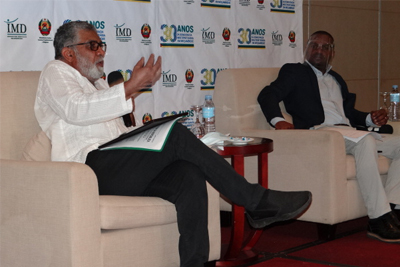
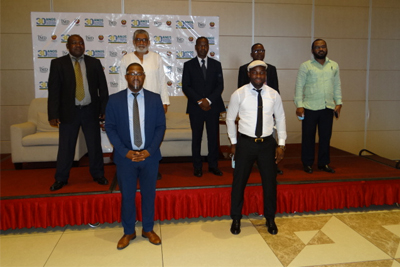

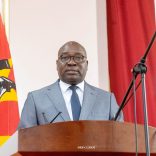
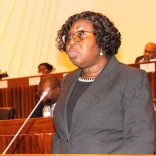
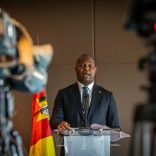
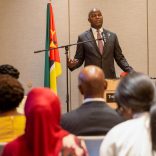





Leave a Reply
Be the First to Comment!
You must be logged in to post a comment.
You must be logged in to post a comment.